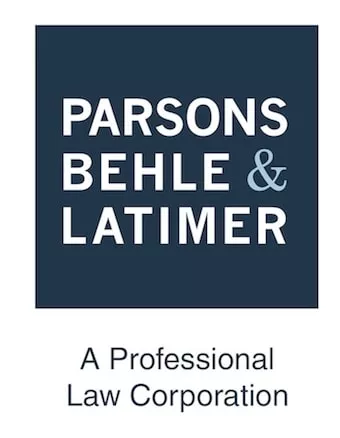- with readers working within the Banking & Credit industries
Employers are often served with state or federal subpoenas, formally known as a Subpoena Duces Tecum, that demand the production of documents that relate to their employees or demand that an employer representative appear to give testimony at a deposition, hearing or trial relating to an employee's employment. A regularly-encountered example is when an employee files a lawsuit against a third party relating to a car accident. The employee alleges damages of lost wages or benefits due to having missed work. While the accident is completely unrelated to the employee's employment, it is likely that counsel for the defendant third party will subpoena the employer and demand the production of the employee's personnel files, including paychecks, tax returns, attendance records and benefit information to substantiate or disprove the employee's claimed damages. Addressed below are various – but certainly not all – relevant factors to be considered if you are served with a subpoena like the one described above.
General Considerations in Analyzing Subpoenas.
After being served with a subpoena requesting employee (and other) records, employers should first consider taking the following steps:
1. Ensure that the party serving the subpoena has served the correct entity, i.e., the employer or potentially, one of the employer's affiliate entities.
2. Ensure that the party serving the subpoena on the employer's correct registered agent. In Idaho, the employer's registered agent can be found on the Idaho Secretary of State's website: https://sos.idaho.gov.
3. Check the applicable state or federal rules regarding the subpoena's required form, contents, service requirements, scope, date to respond and tender of reasonable cost of production before deciding if the employer is legally required to respond. Idaho Rule of Civil Procedure 45 and Federal Rule of Civil Procedure 45 have certain content requirements for subpoenas to be valid, including: (a) the name of the court from which it was issued; (b) the title of the action and the case number; (c) whether the subpoena is commanding the responding party to appear or produce documents; (d) the responding party's rights to object and duties to respond; (e) a reasonable time to respond, etc. Employers can easily access these rules via a web search.
4. Calendar the date on which the information, documentation or witness is required to be produced so that all necessary employer representatives are involved in responding to the subpoena and all are aware of the deadline. Failure to comply with the deadline can result in significant consequences for the employer or its employees, as discussed below.
5. Analyze the contents and scope of information or documentation requested in the subpoena. Then notify the employer's general counsel or other in-house counsel, the named officers, employees or document custodians of the relevant business unit as well as the IT department to ensure that the requested information or documentation is preserved for review and potential production.
6. Obtain from the various document custodians a general idea of what documents the employer may possess that could be responsive to the subpoena.
7. Determine whether the employer may want to retain outside counsel to assist in responding or objecting to the subpoena, which may involve the relevant court's participation. (Note that in many jurisdictions, attorneys are authorized to issue subpoenas without the court's involvement, and all too often, attorneys issue subpoenas that are patently objectionable.) Numerous grounds exist to object to subpoenas, the most common of which can include:
a. The documents or categories of documents requested in the subpoena are poorly defined, and it is unclear exactly what documents are being sought by the subpoena. Unartfully drafted subpoenas can make it impossible for an employer to respond.
b. The subpoena is overly broad and unduly burdensome in that it requests a large volume of documents or Electronically Stored Information from many document custodians.
c. The subpoena includes requests for documents that constitute the employer's confidential, trade secret, financial, or other protected and sensitive information or documentation.
d. The subpoena includes requests for information or documentation that is protected by the Attorney-Client or Work-Product Privileges or any other applicable privilege that is recognized under the law.
e. The subpoena includes requests for the financial or confidential information of an employee, thereby raising privacy concerns, e.g., health information that is protected under the Health Insurance Portability and Accountability Act (HIPPA) or other sensitive information that an employee may have a right to protect from disclosure.
8. When determining how to respond to a subpoena, an employer should also consider the cost, i.e., the number of documents that may be responsive, the estimated time required of the employer's representatives to identify and compile responsive documents, and the time it will take to review the responsive documents for privileged, confidential, propriety, or trade secret information as well as the redacting of that information. This determination is necessary because the party serving a subpoena can be required to pay the reasonable costs that will be incurred by an employer in responding to a subpoena – prior to the production of the responsive documents.
Employer Considerations in Responding to a Subpoena.
There are several ways an employer can respond to a subpoena. First, the employer can choose to contact the issuing party, or its counsel, to informally resolve a subpoena that an employer believes is objectionable. For example, after discussing problematic issues with a subpoena, the requesting party may agree to pay the employer's reasonable costs to produce a large volume of responsive documents. Or the party may agree to narrow the scope of the requests in the subpoena if the documents requested appear to be nonresponsive or irrelevant, e.g., a party requests all of the employee's personnel files, including performance evaluations, when the employee is only seeking damages for lost wages/benefits. The party may also agree to provide the employer with additional time to respond to the subpoena, or even withdraw the subpoena, if the employer confirms (a) the employer searched for, but does not have, any responsive information or documents, (b) the witness subpoenaed is no longer employed by the employer, or (c) the witness is unavailable due to illness, disability or death. While subpoenas are inherently adversarial, these collaborative efforts are cost-effective and often result in a successful outcome without having to go to court.
Next, an employer can choose to comply with a subpoena and produce the requested information or documents by the deadline specified in the subpoena. However, an employer should consider whether the documents being produced need to be redacted to protect any confidential, trade secret, financial or other proprietary information of the employer. If any documents are redacted or completely withheld on the basis of privilege, confidentiality, trade secret or other related reasons, the employer is required to describe the nature of the redacted or withheld documents.
Significantly, employers likely have an obligation to protect employee privacy and confidential information. This may require the employer to redact produced documents to protect confidential information including HIPPA protected information and medical records, financial records, social security numbers, birth dates, home addresses, etc. If medical records or financial records of an employee are requested, it is a good practice to ensure that either (a) the employee has signed a specific records release that has been provided with the subpoena, or (b) you obtain a records release from the employee. It is also a generally good practice for an employer to inform the employee of the subpoena, discuss the parameters of the subpoena, and determine whether the employee objects to the subpoena. Remember, this is your employee. You should seriously consider the employee's interests when responding to a third-party subpoena.
Finally, an employer may object to the subpoena based on the examples identified above. Objections are generally required to be specific and state the grounds for the objections as well as identify whether the employer is withholding any information or documentation based on the objections. Potential objections, in addition to the examples listed above, can include:
1. The subpoena was improperly served, e.g., a party served an entity that is unaffiliated with the employer, or the party did not serve the employer's correct registered agent.
2. Responding to the subpoena would impose unreasonable costs on the employer, and the subpoenaing party refuses to pay for those reasonable costs.
3. The subpoena contains requests for information or documents that are irrelevant. Another example of "irrelevancy" would be when a third party has a judgment against an employee for a monetary amount, but that party issues a subpoena demanding the production of all the employee's personnel files, which include medical records.
4. Vague, ambiguous, or illogical requests. If an employer cannot reasonably determine what documents or information is being requested, the subpoena is objectionable.
Based on these and other potentially applicable objections, an employer's in-house or external legal counsel may decide to challenge the subpoena in court by filing a motion for a protective order or a motion to quash the subpoena.
As you can see, there are many important issues to consider when an employer is served with a subpoena – not the least of which are the potential consequences for failing to respond. These consequences can include fines, an award of damages, holding an employer (or its employees) in contempt of court for failing to comply or object to a subpoena, and even issuing an arrest warrant. Given these and numerous other considerations, it is generally wise for employers to immediately consult with either internal or external counsel when they have been served with a subpoena for employee or other records.
The content of this article is intended to provide a general guide to the subject matter. Specialist advice should be sought about your specific circumstances.


